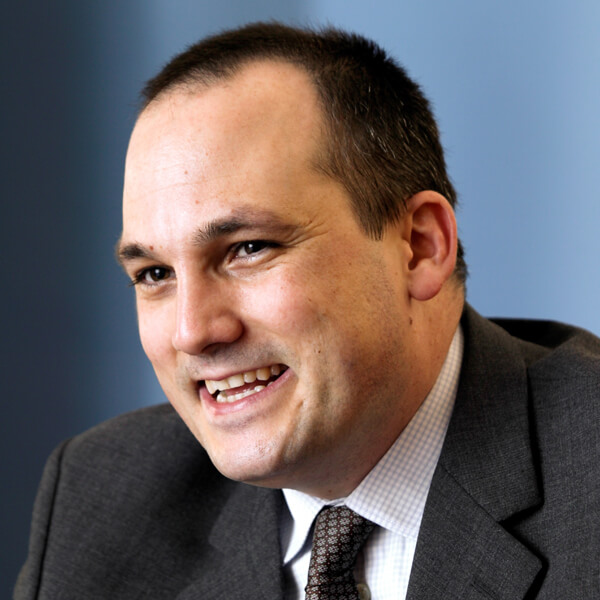Capital IdeasTM
Investment insights from Capital Group
European Equity
- The track record of a company’s management team is a key indicator for understanding future potential.
- There are interesting examples of growing companies attempting to disrupt large industries.
- Europe is a fertile hunting ground across many different industries.
Lawrence Kymisis and Peter Gusev discuss why growing small and mid-cap companies in Europe can provide potentially compelling opportunities for long term investors.
What are some of the characteristics you look for in growing companies?
Peter: Very simplistically, I look for companies that are likely to deliver earnings growth at a healthy rate of around high single digits, and ideally with double digits. I also look for companies that have the potential to deliver a high return on capital employed, which is designed to show how efficiently a company makes use of its available capital by looking at the net profit generated in relation to every dollar of capital utilised by the company. This measure informs me as to whether a business is solid or not.
I look for businesses that are likely to be around in the next 5-10 years and be of a much larger size than they currently are. Their growth runway should be long: so, whatever has happened in the past, they can sustain both growth and higher returns on capital in the future.
How important is it to measure the quality of a company’s management team?
Peter: I consider it very important to assess the track record of a management team. One of the first things I like to find out when meeting a company is how long the team has been in place. I also like to get an understanding of the culture of the group.
I seek to learn what key performance indicators the group is focused on and, importantly, their historic track record. I need to see that the company has delivered something positive for its shareholders for the duration that the management team has been in place. I need to feel confident that the management team is experienced and capable, which I gain from personal meetings I have with companies.
Lawrence:Both Peter and I have very low turnover of holdings in our portfolios. For example, many of our most successful investments are companies we have held for more than 5 years. If you are going to hold companies for such a long period of time, then understanding their competitive advantage and feeling very comfortable with the management, assessing their track record and understanding they have a real moat becomes pivotal.
What do you look for in the management of a company?
Lawrence: Having met with many different companies over the years, I have come to better understand the traits that I believe make for a stable management team. Above all, I tend to favour relatively low-key management teams and people I can trust.
Our industry is primarily an art not a science – so we will never get everything perfectly right. You can do an initial assessment of a management team, but it takes time to get to know a company, assess them and to truly paint a picture of a company. As long-term investors, we have the luxury of taking the time to get to know companies and their management teams.
Risk factors you should consider before investing:
- This material is not intended to provide investment advice or be considered a personal recommendation.
- The value of investments and income from them can go down as well as up and you may lose some or all of your initial investment.
- Past results are not a guide to future results.
- If the currency in which you invest strengthens against the currency in which the underlying investments of the fund are made, the value of your investment will decrease. Currency hedging seeks to limit this, but there is no guarantee that hedging will be totally successful.
- Depending on the strategy, risks may be associated with investing in fixed income, emerging markets and/or high-yield securities; emerging markets are volatile and may suffer from liquidity problems.
Our latest insights
-
-
Long-Term Investing
-
-
-
Economic Indicators
RELATED INSIGHTS
-
Economic Indicators
-
Fixed Income
-
Election
Past results are not predictive of results in future periods. It is not possible to invest directly in an index, which is unmanaged. The value of investments and income from them can go down as well as up and you may lose some or all of your initial investment. This information is not intended to provide investment, tax or other advice, or to be a solicitation to buy or sell any securities.
Statements attributed to an individual represent the opinions of that individual as of the date published and do not necessarily reflect the opinions of Capital Group or its affiliates. All information is as at the date indicated unless otherwise stated. Some information may have been obtained from third parties, and as such the reliability of that information is not guaranteed.
Capital Group manages equity assets through three investment groups. These groups make investment and proxy voting decisions independently. Fixed income investment professionals provide fixed income research and investment management across the Capital organisation; however, for securities with equity characteristics, they act solely on behalf of one of the three equity investment groups.
 Lawrence Kymisis
Lawrence Kymisis